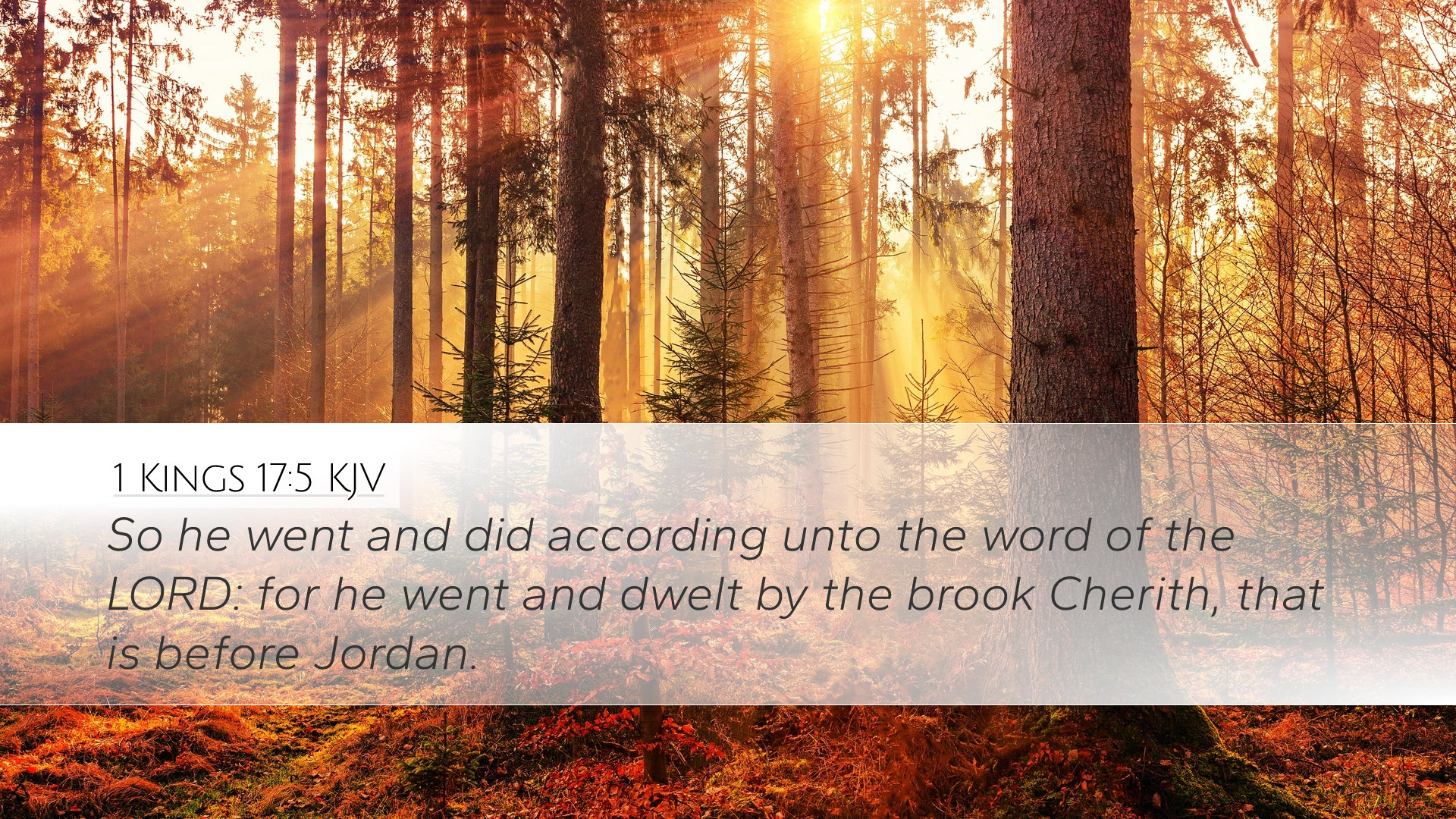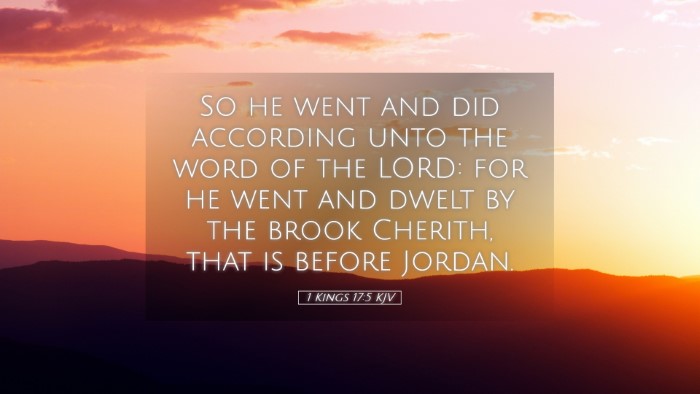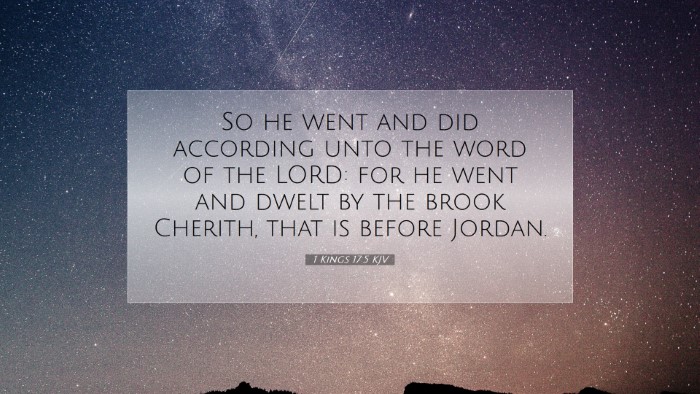Commentary on 1 Kings 17:5
Verse: "So he went and did according unto the word of the Lord: for he went and dwelt by the brook Cherith, that is before Jordan."
Introduction
The narrative surrounding 1 Kings 17:5 places the prophet Elijah in a critical and transformative part of Israel's history. As he responds to God's directive, his journey reflects profound themes of obedience, faith, and divine provision amidst scarcity.
Contextual Analysis
The context of Elijah's calling comes at a time of intense idolatry under King Ahab's reign. This sets the stage for his prophetic mission, which is characterized by both confrontation and care. The brook Cherith serves as a designated place of refuge and sustenance, signifying God's provision in a time of drought.
Insights from Matthew Henry
Matthew Henry emphasizes the importance of obedience to God's Word, noting that Elijah did not question the divine command but rather acted promptly. He stated:
"He went as he was directed, not seeking further for reasons or considerations..."
Henry elaborates that the choice of location, the brook Cherith, is rich with symbolism. Cherith, which means 'cutting', symbolizes a place where God cuts off distractions, allowing for spiritual nourishment. Furthermore, Henry observes the safety found in isolation, arguing that God often leads his servants into solitude for personal refinement and communion with Him.
Insights from Adam Clarke
Adam Clarke provides a linguistically rich analysis, discussing the Hebrew terms used in this passage. He notes that the phrase "went and dwelt" indicates a sense of permanence and commitment.
Clarke states:
"The Lord sometimes sends his servants to solitary places, where they may pray, study, and be prepared for future work..."
He underlines the significance of obedience and trust in God's plan despite uncertainties, highlighting that Elijah was active in faith, intentionally withdrawing from the public eye to receive God's training and provision. Clarke points out that the brook's presence exemplifies the continual supply of God's grace in times of need.
Insights from Albert Barnes
Albert Barnes emphasizes the immediate and unhesitating response of Elijah to God’s commission, affirming that it reflects a model for all spiritual leaders. He writes:
"Elijah’s promptitude is a striking feature of his character; he hesitated not a moment after the command was given."
Barnes elaborates on the geographical significance of the brook Cherith, linking it to the wider narrative of Israel's need for repentance and restoration. He suggests that this episode illustrates God’s care for His prophets, providing both physical sustenance and an environment conducive to prayer. He also remarks on the broader implications for the community—while God provides for Elijah, it also points to His mercy towards a nation in desperate need.
Theological Reflections
The historical and theological implications of 1 Kings 17:5 are substantial. This moment reflects God's sovereignty and His method of providing for His faithful servants even in dire circumstances. Observing Elijah's obedience sets a precedent for all believers regarding the authenticity of faith and reliance on God’s provision.
- Obedience: Elijah’s actions prompt a reflection on personal devotion to God’s will. His immediate compliance serves as a model for spiritual discipline and trust.
- Divine Provision: The narrative reminds readers that God is able to provide sustenance—even in unexpected ways. The brook symbolizes God’s care in the wilderness.
- Isolation for Preparation: Cherith becomes a place where Elijah was cut off from distractions, allowing God to prepare him for future challenges. This speaks to the necessity of solitude in a believer’s life.
Application for Contemporary Believers
This passage is especially poignant for those in ministry or spiritual leadership. It calls for a deep introspection regarding how we respond to God’s call and where we find our sustenance in times of drought.
Moreover, it challenges believers to seek out 'Cherith experiences'—times of withdrawal that facilitate growth, prayer, and deeper reliance on God's provision. It begs the question for pastors, students, and scholars:
- Are we obedient to God's call in our lives?
- Do we trust in His provision, even when the resources seem to run dry?
- Do we prioritize moments of solitude to nurture our relationship with God?
Conclusion
In summary, 1 Kings 17:5 offers a rich tapestry of theological insights that resonate through the ages. The collective commentary from Matthew Henry, Adam Clarke, and Albert Barnes reveals layers of meaning that are relevant for today’s believers, enhancing our understanding of God's faithfulness and our call to respond in obedience. As we reflect on Elijah’s journey to the brook Cherith, may we all seek to emulate his obedience and trust in the unfailing provision of our God.


